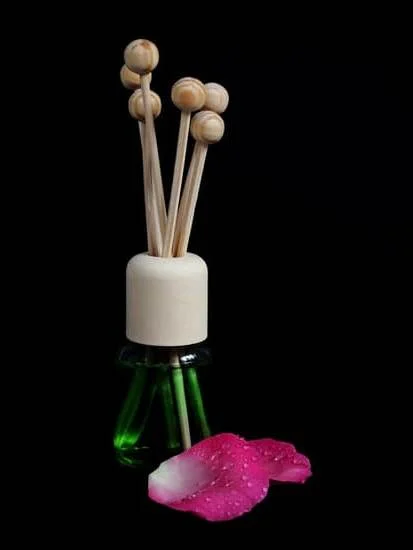Lavender aromatherapy is a practice that involves using the essential oil derived from lavender flowers to promote health and well-being. This ancient technique has gained significant popularity in recent years as people seek natural and holistic approaches to healing.
The soothing scent of lavender has long been associated with relaxation, but its benefits extend far beyond just creating a calming atmosphere. In this article, we will explore the various uses and therapeutic properties of lavender aromatherapy, as well as delve into its rich history and scientific background.
Lavender aromatherapy has become increasingly common in holistic healing due to its versatility and effectiveness in addressing a wide range of issues. From managing stress and anxiety to improving sleep quality, this gentle yet powerful practice offers potential benefits for both mental and physical well-being.
As we delve deeper into the world of lavender aromatherapy, we will discover not only its historical significance as a healing herb but also the fascinating science behind its effects on the brain and body.
Throughout ancient civilizations, lavender was highly regarded as a medicinal tool with numerous applications. Its use dates back thousands of years, where it was valued for its capabilities in alleviating pain, reducing inflammation, and promoting relaxation. From Ancient Greece to Ancient Egypt, lavender played an integral role in traditional medicine. Understanding the historical significance of this herb allows us to appreciate how it continues to impact our lives today through aromatherapy practices.
Stay tuned as we further explore the power of lavender aromatherapy by examining its chemical composition and therapeutic properties. We will uncover how certain compounds found in lavender interact with our senses and influence our well-being. Additionally, we will discuss scientific evidence supporting lavender’s ability to manage stress and anxiety, enhance sleep quality, alleviate headaches and migraines, nurture skin and hair health, boost mood and emotional well-being, among other exciting benefits.
Embark on this aromatic journey with us as we discover the wonders of lavender aromatherapy-a natural approach to healing that has captivated countless individuals seeking relaxation, restoration, and a renewed sense of well-being. Whether you are new to lavender’s therapeutic properties or a seasoned enthusiast, this article aims to provide insightful information and practical advice to help you harness the incredible potential that lavender aromatherapy has to offer.
The Power of Lavender
Lavender has a rich history that dates back thousands of years. This fragrant herb, known for its beautiful purple flowers and soothing aroma, has been used in various cultures around the world for its healing properties.
In ancient times, lavender was highly valued for its medicinal benefits. The Egyptians are believed to have used lavender in the embalming process and as a perfume. It was also commonly used by the Romans for bathing, cooking, and healing wounds on the battlefield. Moreover, lavender’s name is derived from the Latin word “lavare,” which means “to wash,” indicating its historical use in cleansing rituals.
Throughout history, lavender has been recognized for its calming effects on the body and mind. Its scent has long been associated with relaxation and stress relief. In fact, during the Early Renaissance in Europe, lavender was commonly placed under pillows to promote sound sleep and ward off evil spirits.
The therapeutic qualities of lavender have stood the test of time and continue to be appreciated in modern times. Today, lavender aromatherapy is widely used to aid in relaxation, reduce anxiety and stress, improve sleep quality, alleviate headaches, nourish skin and hair health, boost mood and emotional well-being, among many other potential benefits.
Including HTML unordered lists:
- Lavender was used by ancient civilizations such as the Egyptians and Romans.
- The name “lavender” comes from the Latin word “lavare,” meaning “to wash”.
- Lavender has historical significance as a tool for relaxation.
- It continues to be popular today in holistic healing practices.
Lavender’s journey through history speaks to its enduring appeal as a natural remedy for promoting well-being. From ancient civilizations to modern holistic healers, this versatile herb has played an integral role in improving physical and mental health.
The Science Behind Lavender Aromatherapy
Lavender aromatherapy is not just a popular trend, but it is also grounded in scientific research and evidence. The therapeutic properties of lavender essential oil can be attributed to its complex chemical composition.
Understanding the Chemical Composition
Lavender essential oil contains over 100 different compounds, with the most abundant ones being linalool and linalyl acetate. These compounds are responsible for lavender’s distinct aroma and its therapeutic effects. Linalool has been shown to have sedative and anxiolytic (anti-anxiety) properties, while linalyl acetate possesses anti-inflammatory and analgesic (pain-relieving) properties.
Another significant compound found in lavender essential oil is terpinen-4-ol, which exhibits antimicrobial activity against various strains of bacteria and fungi. This antibacterial property makes lavender aromatherapy a valuable tool for skin conditions such as acne or dermatitis.
The Interaction with the Brain and Body
When inhaled or applied topically, the compounds in lavender essential oil can interact with the brain and body through multiple mechanisms. Inhalation of lavender aroma stimulates the olfactory system, which sends signals to the limbic system – a part of the brain involved in emotions, memories, and stress response.
The inhalation of lavender aroma has been found to increase alpha waves in the brain, promoting relaxation. This effect helps calm both the mind and body, reducing stress levels.
When applied topically, such as through massage or diluted in carrier oils for skincare purposes, lavender essential oil penetrates the skin’s surface and enters into circulation. It exerts its therapeutic effects on a systemic level by modulating neurotransmitters like gamma-aminobutyric acid (GABA), serotonin, dopamine, and norepinephrine – all of which play significant roles in mood regulation and emotional well-being.
Managing Stress and Anxiety with Lavender Aromatherapy
The Calming Effects of Lavender Aromatherapy
Lavender aromatherapy has long been known for its calming and soothing effects on the nervous system. The unique scent of lavender can help to alleviate stress and anxiety, promoting a sense of relaxation and well-being.
When inhaled, the aroma of lavender essential oil interacts with the limbic system in our brain, which is responsible for controlling emotions and regulating stress response. This interaction triggers the release of neurotransmitters such as serotonin and gamma-aminobutyric acid (GABA), which promote feelings of calmness and reduce anxiety.
Numerous scientific studies have explored the efficacy of lavender aromatherapy in managing stress and anxiety. A study published in the Journal of Alternative and Complementary Medicine found that inhaling lavender essential oil reduced levels of cortisol, the hormone associated with stress, in participants. Another study published in the International Journal of Psychiatry in Clinical Practice demonstrated that lavender aromatherapy significantly reduced anxiety levels in patients awaiting dental treatment, suggesting its potential as an adjunct therapy for anxiety disorders.
Scientific Evidence Supporting Lavender Aromatherapy
The effectiveness of lavender aromatherapy in managing stress and anxiety is supported by a growing body of scientific evidence. Research has shown that lavender essential oil contains compounds such as linalool and linalyl acetate, which have sedative properties and can help to induce relaxation. These compounds act on various neurotransmitter systems and receptors in the brain, including GABA receptors, thereby reducing nervous system activity and promoting a calmer mental state.
A review published in Frontiers in Behavioral Neuroscience highlighted several studies demonstrating the anxiolytic effects of lavender aromatherapy. It concluded that inhaling lavender essential oil can significantly reduce symptoms of generalized anxiety disorder (GAD) without causing adverse side effects. Moreover, a systematic review published in The Journal of Alternative and Complementary Medicine analyzed multiple controlled trials and concluded that lavender aromatherapy was effective in reducing both psychological and physiological indicators of stress.
Ways to Incorporate Lavender Aromatherapy into Your Routine
There are various ways to incorporate lavender aromatherapy into your daily routine to manage stress and anxiety. One popular method is through using a diffuser, which disperses the scent of lavender essential oil throughout a room. Simply add a few drops of lavender oil to water in the diffuser, turn it on, and enjoy the calming aroma.
Another option is to create a relaxing bath by adding a few drops of lavender essential oil to warm water. The steam from the bath will carry the scent and provide an opportunity for relaxation.
For those looking for more portable options, lavender essential oil can be diluted with a carrier oil such as jojoba or coconut oil and applied topically to pulse points or the back of the neck. This allows you to experience the calming effects of lavender wherever you go. Additionally, incorporating lavender into your nighttime routine can promote better sleep quality, helping to reduce anxiety levels overall.
Enhancing Sleep Quality with Lavender Aromatherapy
Sleep is an essential aspect of our overall well-being, and many people struggle with getting a good night’s rest. If you find it challenging to fall asleep or stay asleep, incorporating lavender aromatherapy into your nighttime routine may be just the solution you need. The soothing and relaxing properties of lavender essential oil have long been recognized for their ability to promote better sleep quality.
Numerous studies have shown that lavender aromatherapy can significantly improve both the duration and quality of sleep. One study published in the journal Evidence-Based Complementary and Alternative Medicine found that participants who were exposed to lavender essential oil before bedtime experienced an increase in deep sleep, also known as slow-wave sleep. This phase of sleep is crucial for restoring the body and mind, promoting physical healing, and supporting cognitive function.
To incorporate lavender aromatherapy into your sleep routine, there are several methods you can try. One popular technique is to use a diffuser or vaporizer to disperse the scent of lavender essential oil throughout your bedroom. You can also create a DIY linen spray by mixing a few drops of lavender oil with water in a spray bottle and misting it onto your pillowcases and bedding before going to bed.
Another effective way to utilize lavender aromatherapy is through massage. Dilute a few drops of lavender oil with a carrier oil such as coconut or jojoba oil, then gently massage it onto your temples, neck, and shoulders before bedtime. This will not only help you relax physically but also allow the calming aroma of lavender to envelop your senses.
With its proven ability to enhance sleep quality, incorporating lavender aromatherapy into your nightly routine can make a significant difference in how well-rested you feel each morning. So next time you’re struggling with restless nights or insomnia, consider harnessing the power of lavender for a peaceful slumber.
Alleviating Headaches and Migraines with Lavender Aromatherapy
Headaches and migraines can be debilitating, causing intense pain and disrupting daily life. Fortunately, lavender aromatherapy offers a natural and effective solution for managing these conditions. With its analgesic properties and calming effects on the nervous system, lavender essential oil has been shown to provide relief from headaches and migraines.
The analgesic properties of lavender essential oil make it an excellent choice for soothing headache symptoms. Lavender contains compounds such as linalool and linalyl acetate that have pain-relieving effects when inhaled or applied topically. These compounds work by interacting with the neurotransmitters in the brain, reducing pain signals and promoting relaxation.
To utilize lavender aromatherapy for relieving headaches or migraines, there are several practical ways to incorporate it into your routine. One option is to gently massage diluted lavender essential oil onto your temples or forehead, focusing on areas where you feel tension or pain. Alternatively, you can add a few drops of lavender oil to a warm bath or use it in a diffuser to inhale the fragrance throughout the room.
Many individuals find that combining lavender aromatherapy with other techniques like deep breathing exercises or gentle stretching can further enhance its headache-relieving benefits. It’s important to remember that results may vary from person to person, so it may be worth experimenting with different methods until you find what works best for you.
By harnessing the power of lavender aromatherapy, individuals suffering from headaches or migraines can experience relief without relying solely on medication. Its natural properties provide a holistic approach to managing pain symptoms while promoting relaxation and overall well-being.
Nurturing Skin and Hair Health with Lavender Aromatherapy
Lavender essential oil is not only known for its calming and stress-relieving properties, but it also offers numerous benefits for skin and hair health. With its antibacterial, anti-inflammatory, and soothing properties, lavender aromatherapy can be a natural and effective addition to skincare and haircare routines.
When it comes to skincare, lavender essential oil has been used for centuries to help treat various skin conditions. Its antibacterial properties make it effective in fighting acne-causing bacteria, while its anti-inflammatory properties can help reduce redness and irritation. Additionally, lavender can promote healing by stimulating the production of collagen, which is essential for maintaining youthful and healthy-looking skin.
Lavender aromatherapy can also benefit hair health in several ways. The antiseptic properties of lavender essential oil can help keep the scalp clean and prevent dandruff or other scalp infections. It may also stimulate hair growth by improving blood circulation in the scalp.
To incorporate lavender aromatherapy into your skincare routine, you can create your own DIY products or look for products that contain lavender essential oil as an ingredient. For example, you can mix a few drops of lavender oil with carrier oils like coconut or jojoba oil to create a moisturizing face or body oil. You can also add a few drops of lavender oil to your facial cleanser or toner for added antibacterial benefits.
Similarly, for haircare, you can add a few drops of lavender essential oil to your shampoo or conditioner to promote scalp health and improve the overall condition of your hair. You can also create a homemade hair mask by mixing lavender essential oil with other nourishing ingredients like coconut milk or honey.
It is important to note that while lavender essential oil is generally safe for most people, some individuals may experience allergic reactions or sensitivities. It is always recommended to do a patch test before using any new product containing lavender essential oil on your skin or hair. Additionally, if you have any known allergies or specific skin conditions, it is best to consult with a healthcare professional before incorporating lavender aromatherapy into your routine.
Overall, lavender aromatherapy offers a natural and holistic approach to nurturing skin and hair health. With its soothing and healing properties, lavender essential oil can be a valuable addition to any skincare or haircare routine.
Boosting Mood and Emotional Well-being with Lavender Aromatherapy
Numerous studies and anecdotal evidence suggest that lavender aromatherapy has a significant impact on mood regulation and emotional well-being. The soothing and calming properties of lavender essential oil can help alleviate stress, anxiety, and depression, promoting an overall sense of relaxation and emotional balance.
One of the ways lavender aromatherapy boosts mood is through its effect on the limbic system in the brain. The limbic system plays a crucial role in regulating emotions, memory, and behavior. When inhaling lavender essential oil, certain compounds within the oil stimulate the limbic system, triggering positive emotions and reducing feelings of anxiety or depression.
In addition to its direct influence on the brain, lavender aromatherapy also affects the body by promoting relaxation. Research has shown that breathing in lavender essential oil can decrease heart rate and blood pressure, leading to a state of calmness. This physiological response contributes to an overall improvement in mood and emotional well-being.
There are various ways to incorporate lavender aromatherapy into daily routines for mood enhancement. Diffusing lavender essential oil throughout your home or workspace can create a relaxing atmosphere and promote a sense of tranquility. Additionally, incorporating lavender into massage oils or bath products allows for both physical and emotional relaxation. By exploring different methods of utilizing lavender essential oil, individuals can harness its healing power for their unique needs.
Overall, using lavender aromatherapy as a natural remedy for boosting mood and emotional well-being has gained popularity due to its accessible nature and scientifically-backed benefits. By incorporating this ancient herb into modern wellness practices, individuals can experience its profound effects on their mental health and overall sense of well-being.
Precautions and Considerations for Lavender Aromatherapy
Lavender aromatherapy is generally considered safe and well-tolerated by most individuals. However, it is important to be aware of precautions and considerations before incorporating lavender essential oil into your wellness routine. While adverse reactions are rare, it is always recommended to consult with a healthcare professional, especially if you have any underlying medical conditions or are on medication.
One potential concern when using lavender aromatherapy is the possibility of an allergic reaction. Some individuals may have sensitivities to lavender essential oil, which can manifest as skin irritation, rash, or respiratory symptoms such as coughing or wheezing.
It is advisable to perform a patch test before applying undiluted lavender oil directly onto the skin. Apply a small amount of diluted oil (mixed with a carrier oil like coconut or jojoba) on the inner forearm and wait for 24 hours to check for any adverse reactions.
Additionally, certain medications may interact with lavender essential oil. If you are taking any prescription drugs or over-the-counter medications, it is crucial to consult with your healthcare provider before using lavender aromatherapy. This is particularly important if you are on medications that act on the central nervous system, such as sedatives or antidepressants.
Moreover, pregnant women should exercise caution when using lavender essential oil due to its potential hormonal effects. While there is limited scientific research on the specific effects of lavender during pregnancy, it is advisable to consult with a healthcare professional before incorporating it into their routine.
| Lavender Aromatherapy Precautions | Considerations |
|---|---|
| Allergic Reaction | Perform a patch test before applying undiluted lavender oil directly onto the skin. If any adverse reactions occur, discontinue use. |
| Medication Interactions | Consult with a healthcare professional if you are taking any medications, especially those that act on the central nervous system. |
| Pregnancy | Exercise caution and consult with a healthcare professional before using lavender essential oil during pregnancy. |
Conclusion
In conclusion, lavender aromatherapy holds incredible healing power that has been recognized and utilized for centuries. From its historical significance as a medicinal herb to the scientific evidence supporting its therapeutic properties, lavender aromatherapy has proven to be a versatile and effective holistic tool.
One of the key benefits of lavender aromatherapy is its ability to manage stress and anxiety. The calming and soothing effects of lavender on the nervous system have been well-documented, with numerous studies showcasing its efficacy in reducing stress levels and promoting relaxation. Whether it’s through diffusing lavender essential oil or incorporating it into bath rituals, harnessing the power of lavender can provide a much-needed respite from the stresses of daily life.
Additionally, lavender aromatherapy has shown promising results in enhancing sleep quality. By promoting relaxation and easing tension, lavender can help create an optimal environment for restful sleep. Whether it’s through pillows sprays or linen spritzes infused with lavender essential oil, incorporating this fragrant herb into nighttime routines can contribute to better sleep patterns.
Furthermore, lavender aromatherapy offers benefits beyond stress reduction and sleep improvement. Its analgesic properties make it a valuable tool for relieving headaches and migraines, while its antibacterial and anti-inflammatory properties make it ideal for nourishing skin and hair health. Additionally, the impact of lavender on mood regulation and emotional well-being cannot be understated, making it an integral part of any self-care routine.
Frequently Asked Questions
What are the benefits of smelling lavender essential oil?
Lavender essential oil offers a range of benefits due to its distinctive and pleasant scent. Its aroma is commonly associated with relaxation and stress relief, as it is known to have calming effects on the mind and body. Inhaling lavender essential oil can promote better sleep, ease anxiety, and reduce feelings of depression.
It has also been found to help alleviate headaches and migraines, as well as enhance cognitive function and concentration. Additionally, lavender essential oil possesses antimicrobial properties that may aid in healing minor wounds or skin irritations.
How does lavender aromatherapy work?
Lavender aromatherapy primarily works through the olfactory system, which is responsible for our sense of smell. When the fragrance molecules from lavender essential oil are inhaled, they immediately interact with the olfactory nerves in our nose. These nerves send signals to the brain’s limbic system, which plays a crucial role in regulating emotions, memories, and hormonal responses.
The aromatic compounds found in lavender stimulate certain receptors in the limbic system, triggering physiological and psychological changes within the body. This process can result in relaxation, reduced anxiety, improved mood, and even pain relief.
Is inhaling lavender good for you?
Inhaling lavender can be beneficial for overall well-being. The inhalation of lavender essential oil vapor has been shown to have a positive impact on mental health. It helps calm an overactive mind by reducing anxious thoughts and promoting feelings of tranquility and relaxation.
Furthermore, inhaling lavender vapor has been associated with improved sleep quality and duration due to its sedative properties. By helping individuals achieve a more restful sleep state, lavender inhalation indirectly supports various aspects of physical health such as immune function, energy levels, and healing processes. However, it is worth noting that individual results may vary – while many people find breathing in lavender fragrances helpful, others may not experience the same benefits or may have adverse reactions due to personal sensitivities or allergies.

Are you looking for a natural way to improve your health and wellbeing?
If so, aromatherapy may be the answer for you.





